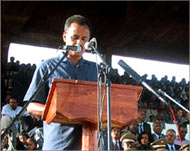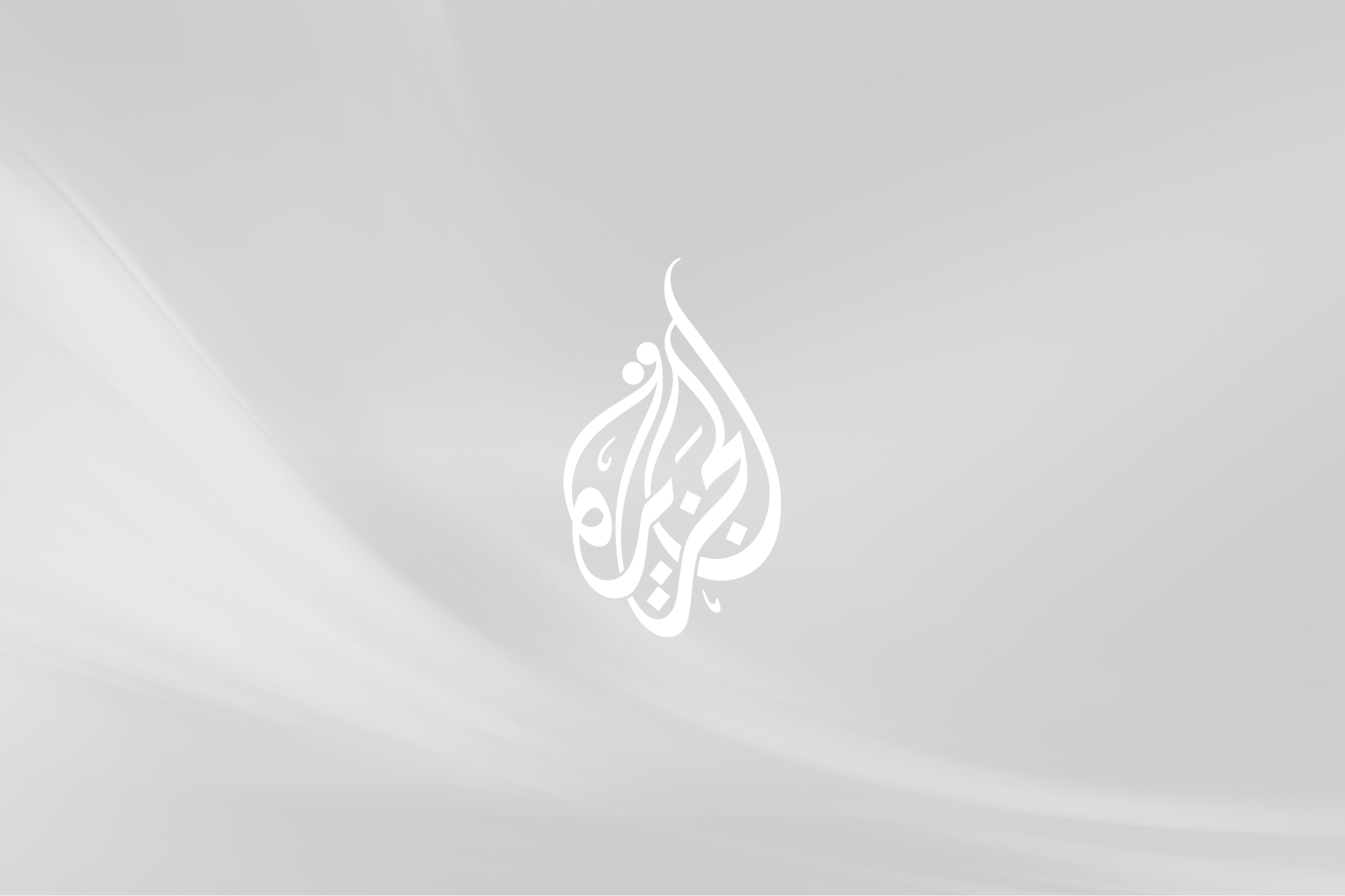Eritrea: Ten years on
Eritrea celebrates a decade of independence from Ethiopia, but tense relations with its neighbours and little evidence of its hoped-for democracy have led to criticism from non-governmental organisations.
 |
| President affirms commitment to democratic process after acknowledging delays |
Speaking to a 13,000-strong crowd on Sunday, President Issaias Afeworki marked the occasion of his ten years in power with a commitment to reform, but blamed the slow road to democracy on a number of factors.
“The political process to which we have been committed, which was interrupted due to the war of aggression, external sabotage and internal betrayal, will continue”, he said.
But many feel disappointed with what independence has brought ordinary people. “It is difficult to forget the past, even now the past preys on our mind but we have to look for what makes our life better,” said one man among the crowds in Asmara.
Poor relations
Earlier in the week, Issaias had said he “didn’t feel isolated”, even though in October he accused Eritrea’s neighbours, Ethiopia, Sudan and Yemen of setting up an “axis of belligerence”.
Relations with Sudan took a turn for the worse last October, when Khartoum claimed Asmara was backing rebels in western Sudan’s Kassala region, a claim seconded by Amnesty International.
 |
| Ethiopian POWs returned two years after the war ends |
Between 1998 and 2000, war with Ethiopia over a border village, Badme, led to ten thousand dead and brought a conscription policy for 18 to 40 year old men that Amnesty International claims has kept some in the military for years against their will.
Yemen’s relations with Eritrea have also been strained after Issaias’s 1995 invasion of the Greater Hanish islands that were later returned to Yemen after an international tribunal demarcated the border.
Democratic future?
The president made no mention in his anniversary speech of when a presidential election might be held, when political prisoners may be released, or when independent journalists will be allowed to operate.
The ban on independent journalism came in force during September 2001, the same month that the Chief Justice resigned over allegations of governmental interference in judicial processes.
The subsequent detention without trial of 18 journalists and 11 former government officials became “issues of national security” and therefore out of bounds as topics for discussion, according to the president in an interview earlier in the week.
Among the 11 former government officials detained, Vice-President Mahmoud Ahmed Sheriffo and former Foreign Ministers Haile Woldetensae and Petros Solomon, have been labelled “traitors” but have had no specific allegations made against them.
The 10 detained journalists have been condemned as “mercenaries and spies”, but no specific charges have been made in the last twenty one months either, though Eritrean law requires that charges be made within 48 hours of arrest.
According to Amnesty International, there is a feeling of fear among ordinary people to make public criticisms of the one-party state and the promised democratic processes made at the time of independence.
Another non-governmental organisation, Human Rights Watch, claims that no lawyer or judge dare challenge the detentions. In some cases, it alleges, political prisoners detained incommunicado in cells are not even acknowledged as detained, to the grave concern of their friends and families.